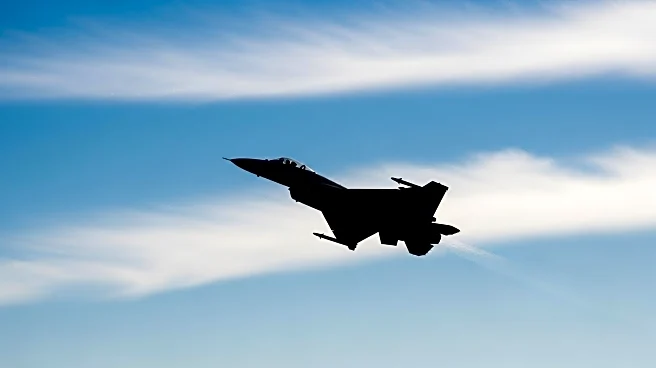What is the story about?
What's Happening?
Estonia has reported a violation of its airspace by Russian fighter jets, prompting the government to seek consultations under NATO's Article 4. The incident involved three Russian MIG-31 fighters entering Estonian airspace for 12 minutes, despite signals from NATO pilots. Estonian officials confirmed the violation through radar and visual contact, dismissing Russia's denial of the incursion. The event is seen as a potential tactic to divert Western resources from Ukraine. Estonia's Foreign Minister Margus Tsahkna labeled the incident a serious breach of NATO airspace, the longest since 2003. Estonia plans to formally consult with NATO allies, a mechanism previously used by Poland after similar airspace violations.
Why It's Important?
The airspace violation underscores ongoing tensions between Russia and NATO member states, particularly in Eastern Europe. Estonia's request for NATO consultations highlights the alliance's role in ensuring the security of its members against external threats. The incident may influence NATO's strategic decisions, potentially leading to increased military presence or defense measures in the region. It also reflects broader geopolitical dynamics, with Russia's actions possibly aimed at testing NATO's response capabilities and diverting attention from the conflict in Ukraine. The situation could impact diplomatic relations and defense policies within the alliance.
What's Next?
Estonia's request for NATO consultations under Article 4 may lead to discussions on enhancing defense measures along the alliance's eastern flank. NATO could consider deploying additional air defense assets to Estonia, similar to the Eastern Sentry mission launched after Poland's airspace was violated. The incident may prompt further diplomatic engagements among NATO members to address security concerns and reinforce collective defense strategies. Estonia and its allies will continue monitoring Russian military activities, potentially influencing future NATO policies and actions in response to such provocations.
Beyond the Headlines
The repeated airspace violations by Russian jets and drones raise concerns about Russia's broader strategy, which may include hybrid warfare tactics such as cyberattacks and influence operations. Estonia's response, along with NATO's potential actions, could set precedents for handling similar incidents in the future. The situation also highlights the importance of maintaining robust defense systems and international cooperation to counter threats to territorial integrity and political independence.
















